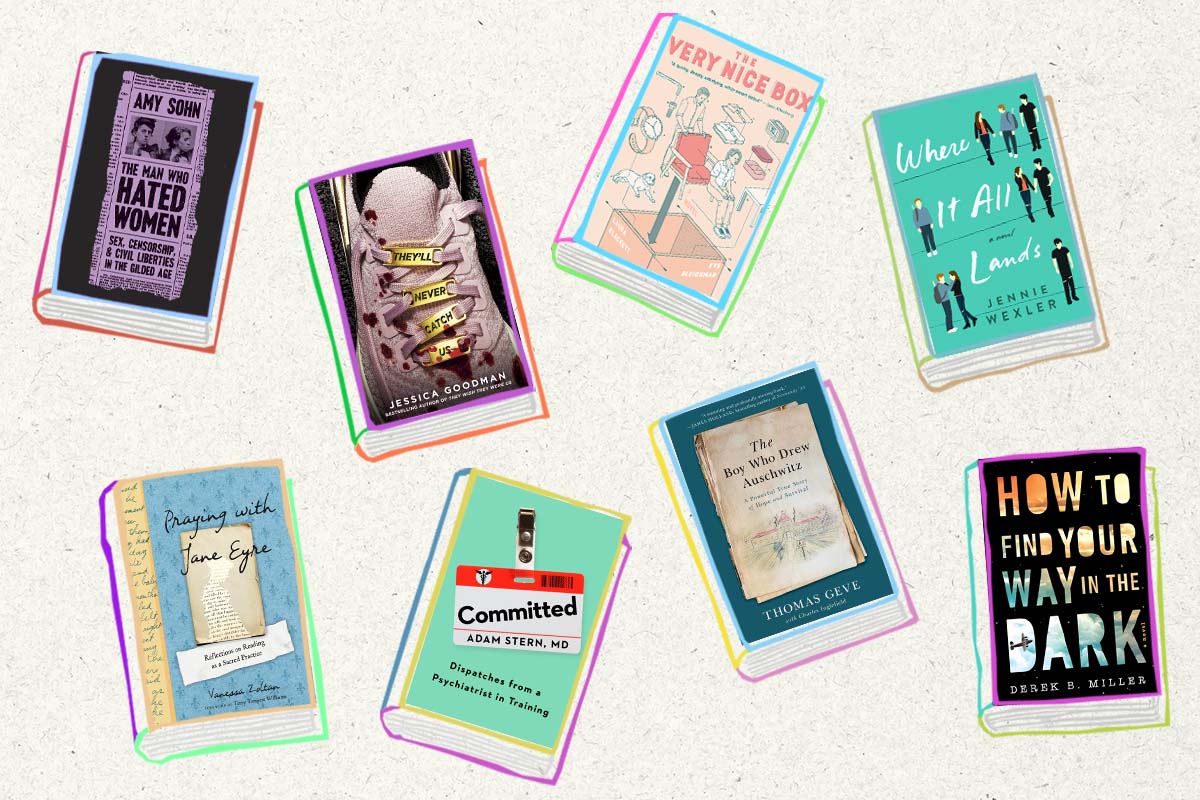When it comes to new Jewish books, July has it all. On the fiction side, there’s hyper-competitive sisters, a vengeful orphan, two friends who are maybe lovers, and a grieving tech employee. In the nonfiction realm, there are three memoirs — a guide to sacred reading that dives into intergenerational trauma, the story of a Jewish engineer who drew his experiences at concentration camps, and the tale of a psychiatrist’s residency — plus a look at “sex radicals” who fought for contraception, gender equality and more. Truly something for everyone, I hope.
As it is every month, this list is all shoppable on Bookshop, a platform supporting local bookstores. Without further ado, here are eight new Jewish books you shouldn’t miss this July 2021:
1. Praying with Jane Eyre: Reflections on Reading as Sacred Practice by Vanessa Zoltan (July 6)
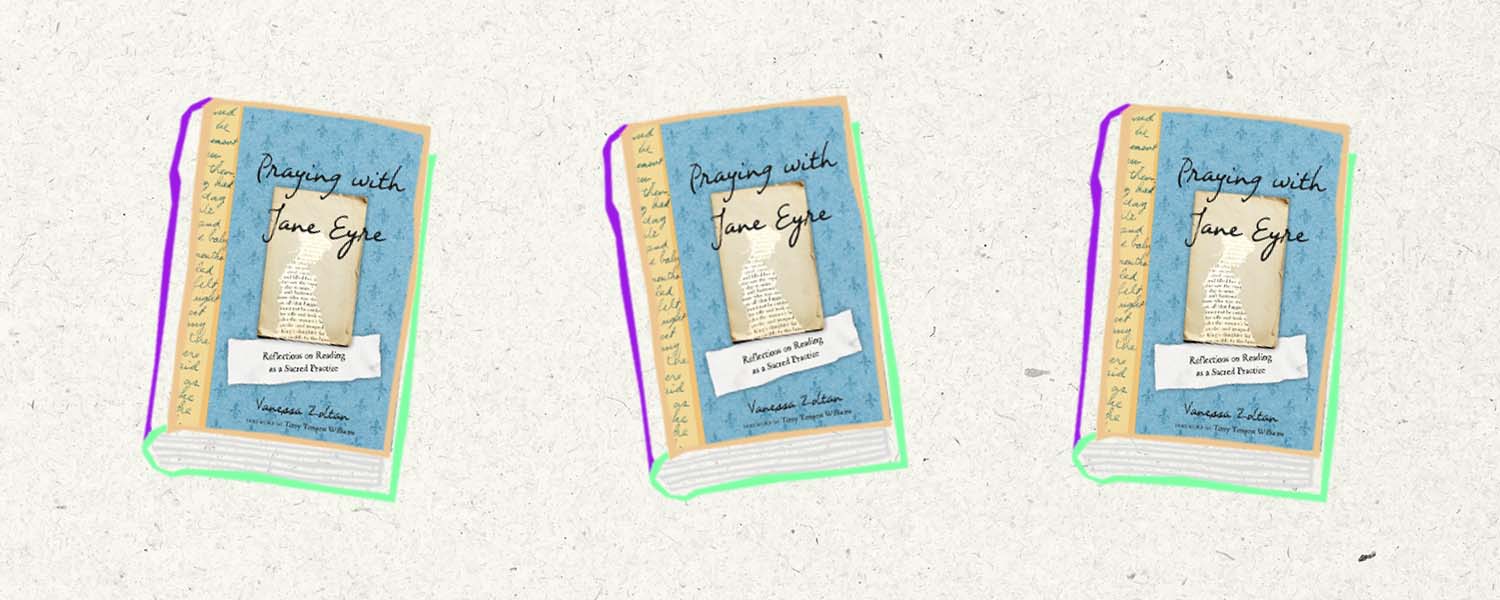
In 2016, Vanessa Zoltan launched the “Harry Potter and the Sacred Text” podcast, in which she and co-host Casper Ter Kuile (later Matt Potts) read the “Harry Potter” series as if it was a sacred text, inspired by Zoltan’s experience reading “Jane Eyre” as a sacred text in divinity school. She turned her experience with “Jane” into a full-length memoir, demonstrating how one can treat any book, not just the Bible, as sacred. Zoltan, who is a humanist chaplain and self-identifies as an atheist Jew, writes movingly of her relationship to reading “Jane Eyre” and of her own journey with spirituality and religion. All four of Zoltan’s grandparents were Holocaust survivors, surviving Auschwitz, and much of her childhood is shaped by being a grandchild of survivors. (“I was in middle school before I realized there wasn’t a single dinner that would pass without the Holocaust at least being hinted at,” she writes.) You don’t need to know “Jane Eyre” to read “Praying with Jane Eyre,” but it definitely helps. Ultimately, a meaningful and heartfelt celebration of “Jane Eyre” and Jewish survival.
Read if you’re into: “Jane Eyre,” Jewish spirituality, and finding hope. The Jewish angle: Vanessa Zoltan, the author, is Jewish, as is much of her story (obviously!). Get it here.
2. The Very Nice Box by Laura Blackett and Eve Gleichman (July 6)

The debut novel from Laura Blackett and Jewish writer Eve Gleichman is at once a compulsively readable satire of white men in tech and a loving look at the power of friendship. Our protagonist, Ava, designs storage boxes for STÄDA (a Brooklyn-based Swedish furniture company that is not not IKEA). She’s obsessive and work-focused, still grieving the loss of her girlfriend and parents from a tragic car accident. But when her new boss, Mat, tries to get to know her, she starts to let him in. But is Mat who he says he is?! I high-key was anxious as I read this. If you, too, are an anxious reader: Don’t worry, Gleichman and Blackett’s ending absolutely delivers. I love how it’s described: “a send-up of male entitlement and a big-hearted account of grief, friendship, and trust.” Sign me tf up.
Read if you’re into: critiques of tech, critiques of men, and tensely plotted stories. The Jewish angle: co-author Eve Gleichman! Get it here.
3. How to Find Your Way in the Dark by Derek Miller (July 27)
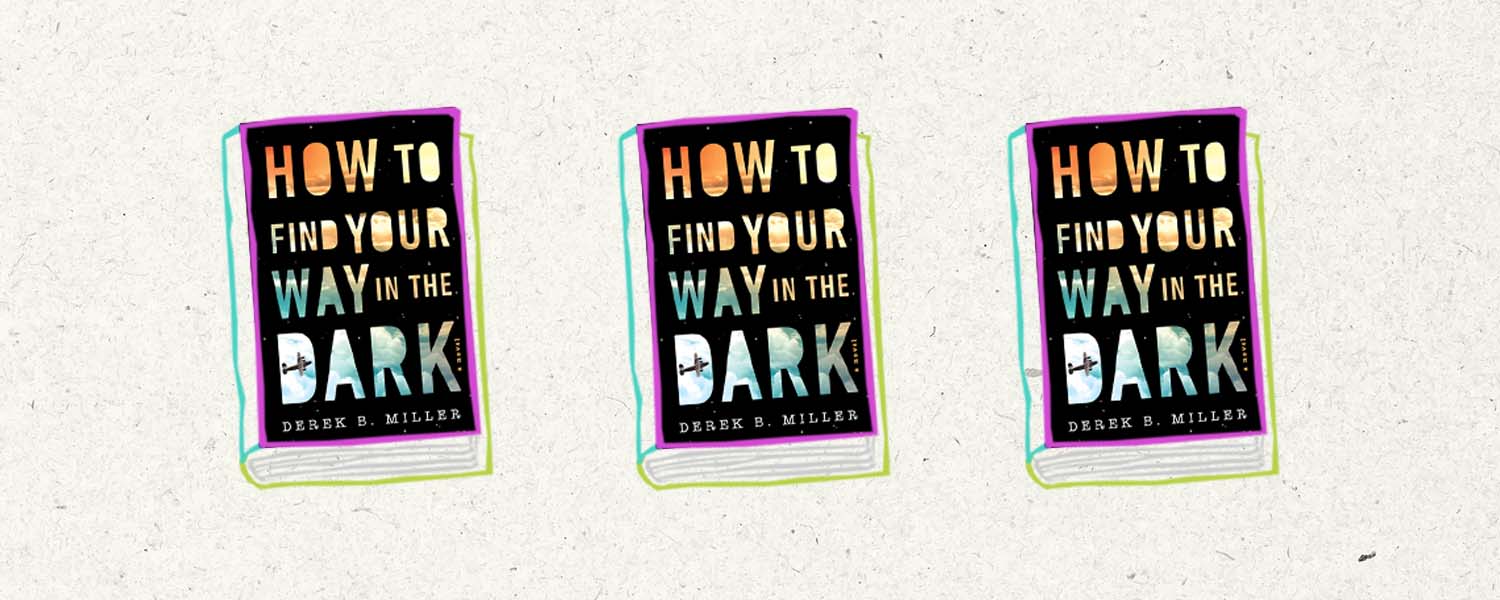
Derek Miller’s follow up to “Norwegian by Night” continues Sheldon Horowitz’s story. In the 2014 crime novel, Horowitz begrudgingly agrees to leave New York and move in with his granddaughter, Rhea, and her husband, Lars, in Norway — “a country of blue and ice with one thousand Jews, not one of them a former Marine sniper in the Korean War turned watch repairman. Not until now, anyway.” In “How to Find Your Way in the Dark,” Miller returns to Sheldon Horowitz but begins not when he’s an ornery old man, but a 12-year-old Jewish boy in rural Massachusetts in 1938. After his father dies in a suspicious accident, Sheldon moves in with his uncle. I love how his story is described: He will “contend with tradition and orthodoxy, appeasement and patriotism, mafia hitmen and angry accordion players, all while World War II takes center stage alongside a hurricane in New England and comedians in the Catskills.” It’s a captivating story.
Read if you’re into: Jewish history, orphans set on vengeance, World War II-era stories. The Jewish angle: The protagonist, Sheldon, is Jewish, as is most of the world he inhabits. Author Derek Miller is also Jewish. Get it here.
4. Committed: Dispatches from a Psychiatrist in Training by Adam Stern (July 13)

Dr. Adam Stern’s memoir is a moving look at what it means to treat mental illness. In “Committed,” Stern documents his years as a psychiatrist resident at Harvard. He writes of imposter syndrome, endless nights spent treating people in the psychiatric ward, and how to help those that don’t want any help. Throughout, there’s also the love story of Adam and his now-wife, Rachel, also a resident in his class, and how they finally ended up together. Stern, now a psychiatrist at Beth Israel Deaconess Medical Center in Boston and an assistant professor of psychiatry at Harvard Medical School, has written openly about battling cancer after becoming a father and how that’s impacted his work as a psychiatrist. This book offers a compelling, honest and revealing look at the profession.
Read if you’re into: thinking about mental health, treatment and therapy. The Jewish angle: The author, Adam Stern, is Jewish. Get it here.
5. The Boy Who Drew Auschwitz by Thomas Geve and Charles Inglefield (July 27)
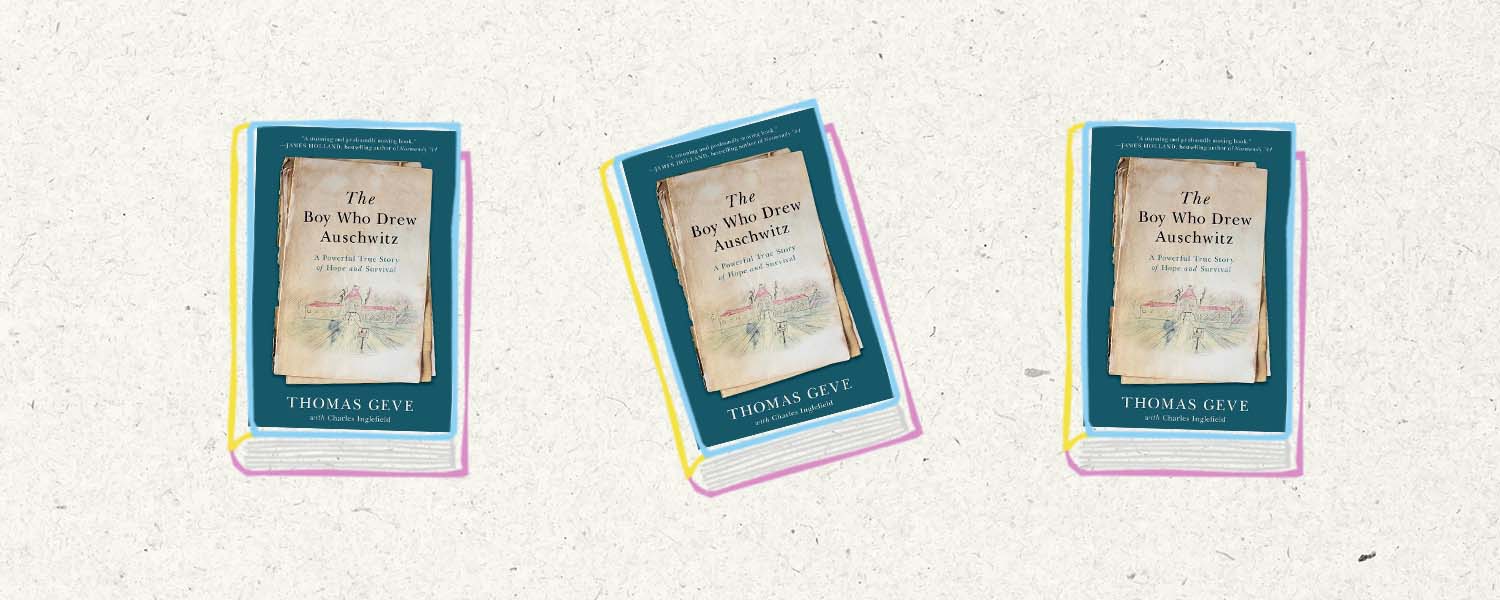
Thomas Geve survived three concentration camps: Auschwitz-Birkenau, Gross-Rosen and Buchenwald. He was 15 when he was liberated from Buchenwald in April 1945, and upon liberation, he drew over 80 works depicting his experiences. They are now mainly on exhibition at Yad Vashem, Israel’s Holocaust memorial:
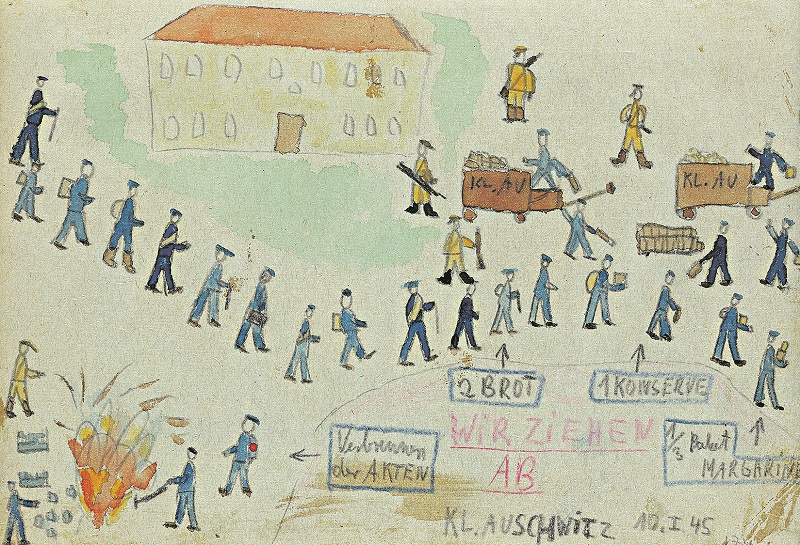
Geve’s drawings are remarkable, depicting the Holocaust through the eyes of a child. In “The Boy Who Drew Auschwitz,” more than 80 of the sketches are published alongside his narrative (written with journalist Charlie Inglefield). In straightforward, clear language, the reader is taken through Geve’s childhood in Germany to the horrors of what he experienced. Geve, now 91, lives in Israel and routinely speaks on his experiences during the Shoah.
Read if you’re into: Holocaust memoirs. The Jewish angle: This is obvious, right? Get it here.
6. They’ll Never Catch Us by Jessica Goodman (July 27)
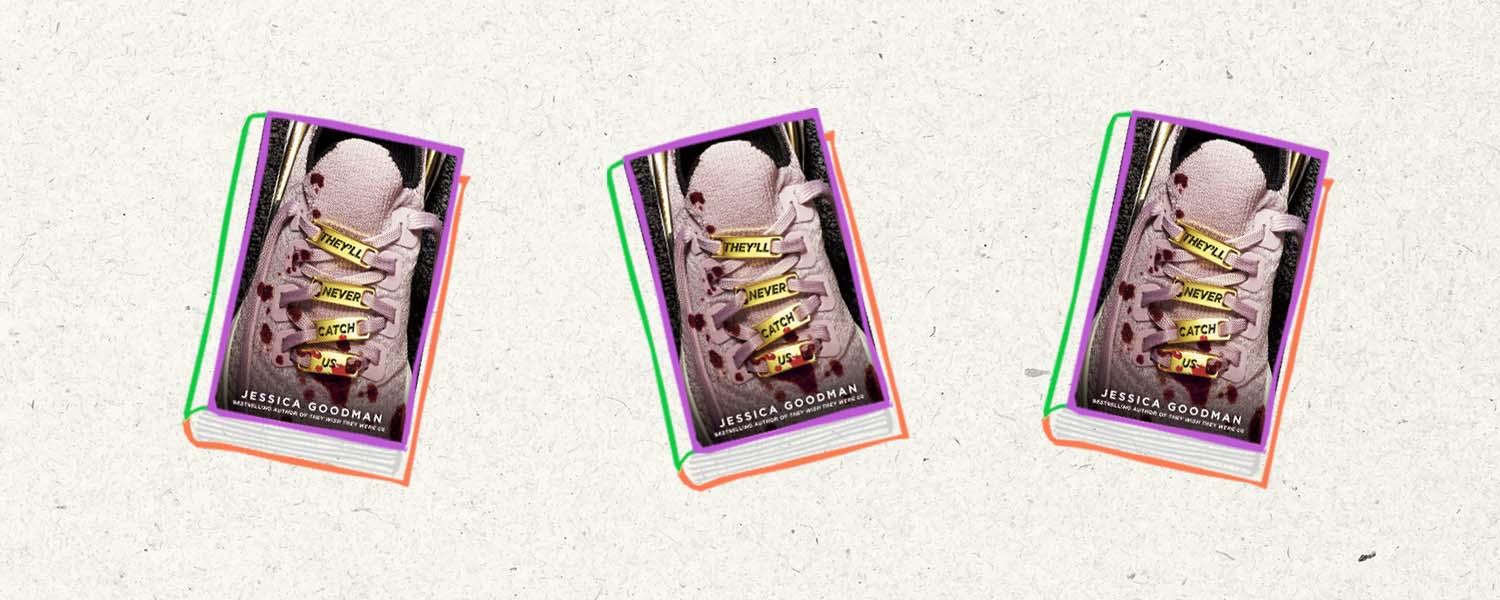
Stella and Ellie Steckler were born 14 months apart. The Jewish sisters are both cross-country runners, but that’s where their similarities end. Ellie is more easygoing, social, and has friends. Stella is single-minded and focused on running. When a new girl, Mila Keene, arrives and joins the team, she upends the lives of the sisters. As regionals approach, Mila disappears on a training run. No one knows what happened — but all eyes shift to the Steckler sisters. This is Jewish author Jessica Goodman’s second book (her first, “They Wish They Were Us,” was another great thriller), and it absolutely doesn’t disappoint. Plus, with the Olympics coming up during July, the book makes a perfect reading supplement to cheering on Jewish athletes!
Read if you’re into: sisterhood, thrillers. The Jewish angle: Jessica Goodman, the author, is Jewish, as are the protagonists. Get it here.
7. The Man Who Hated Women: Sex, Censorship, and Civil Liberties in the Gilded Age by Amy Sohn (July 6)

“The Man Who Hated Women” is a fantastic title, and the book lives up to the greatness. Amy Sohn’s book is a narrative nonfiction story of Anthony Comstock, anti-vice activist and U.S. Postal Inspector, who passed the Comstock Law in 1873 which penalized the mailing of contraception. Sohn tells the story of eight women tried under the Comstock Law, and how “without them, there would be no Pill, no Planned Parenthood, no Roe v. Wade. This is the forgotten history of the war over control of female bodies.” Sohn dives into the stories of eight “sex radicals” — Victoria Woodhull, Ida C. Craddock, Tennessee Claflin, Angela Heywood, Ann “Madame Restell” Lohman, Dr. Sara B. Chase, Emma Goldman and Margaret Sanger — and shows their impact on our present day. “Without understanding the sex radicals,” she writes, “we cannot fight the assault on women’s bodies and souls that continues even today.”
As Sohn writes in the introduction, “Despite their extraordinary contributions to civil liberties, most of the sex radicals have been written out of feminist history (they were too sexual), sex history (they were not doctors), and progressive history (they were women).” But she, thankfully, writes them back in.
Read if you’re into: history, feminist activism. The Jewish angle: Author Amy Sohn is Jewish; Emma Goldman, one of the women she focuses on, was Jewish (and was a famous anarchist and advocate for social justice). Get it here.
8. Where It All Lands by Jennie Wexler (July 6)
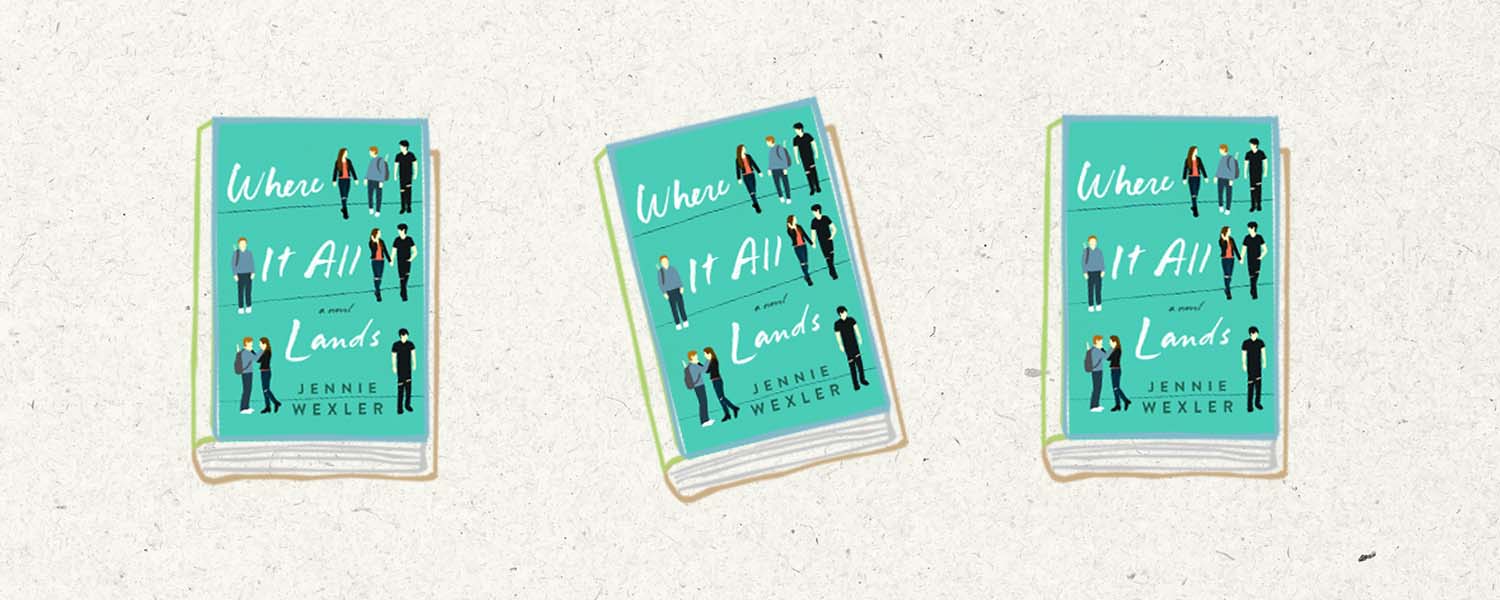
Stevie Rosenstein is the new girl at high school when she joins the marching band. There, she meets best friends Shane and Drew. Shane and Drew both like her — so they flip a coin on who asks her out. That coin flip creates two different timelines — but Stevie remains a powerful center, and you’re always rooting for her. “Told in dual timelines, debut author Jennie Wexler delivers a heartbreaking and hopeful novel about missed opportunities, second chances, and all the paths that lead us to where we are.” Get prepared to feel all the feels.
Read if you’re into: I’ll let Jennie sum it up for you: “If you love friends to lovers, music obsessed main characters, and dual timelines.” The Jewish angle: Stevie, the protagonist, is Jewish. Author Jennie Wexler is also Jewish. Get it here.
Other Books of Note
- “Rachel to the Rescue” by Elinor Lipman gives us the story of Rachel Klein, a White House employed fired after she sends an email criticizing Donald Trump. A political satire from the beloved Jewish author. (July 13)
- Jewish author Michael Pollan returns with “This Is Your Mind on Plants,” which dives into three plant drugs: opium, caffeine and mescaline. A blend of history, science, memoir and journalism. (July 6)
- “An Ugly Truth: Inside Facebook’s Battle for Domination” by Sheera Frenkel and Cecilia Kang is “the book Facebook doesn’t want you to read.” It’s the story of how, under Mark Zuckerberg and Sheryl Sandberg, Facebook became a home for disinformation, hate speech and political propaganda. (July 13)
- Jewish YA star Laura Silverman edited “Up All Night: 13 Stories Between Sunset + Sunrise,” an all-star anthology of stories from YA authors. (July 13)
- The latest in Jewish illustrator/writer Emma Steinkellner’s “The Okay Witch” series, “The Okay Witch and the Hungry Shadow,” follows Moth Hush as she figures out her witch heritage and powers and navigates friendships at school. (July 6)
- “Awakening: #MeToo and the Global Fight for Women’s Rights” by Rachel B. Vogelstein and Meighan Stone, with a foreword by Tarana Burke, chronicles the impact of the global #MeToo movement by spotlighting stories from women in seven countries (Brazil, China, Egypt, Nigeria, Pakistan, Sweden and Tunisia). (July 13)
- Eliot Brown and Maureen Farrell’s “The Cult of We: WeWork, Adam Neumann, and the Great Startup Delusion” is the “definitive inside story of WeWork, its audacious founder, and its epic unraveling.” (July 20)
- “The Forest of Vanishing Stars” by Kristin Hammel is the story of a “young woman who uses her knowledge of the wilderness to help Jewish refugees escape the Nazis — until a secret from her past threatens everything.” (July 6)
- Esther Freud’s “I Couldn’t Love You More” tells the tale of three women across three generations in London and Ireland. One, Aoife, falls in love with Felix Lehmann, a German-Jewish refugee artist, and finds herself pregnant. (July 13)
- Ann Hagedorn tells the true story of Soviet spy George Koval in “Sleeper Agent: The Atomic Spy in America Who Got Away.” Koval was born to Soviet Jewish parents in America but who soon returned to their native country to join a collective farm in the Jewish Autonomous Region of Russia’s Far East, where he was recruited as a spy before he returned to the U.S. for college. A gripping and well-researched story. (July 20)
- One bonus (this was technically released in June but I missed it, and late June is basically July): Adam Sewer’s “The Cruelty is the Point: The Past, Present, and Future of Trump’s America” are powerful essays exploring white nationalism, myths about migration, the political power of police unions, and the many faces of antisemitism, among many other topics. (June 29)
Happy reading! More summer books this way!
Disclosure: This post contains affiliate links, which means we may receive a commission if you click a link and purchase something that we have linked to. While clicking these links won’t cost you any extra money, they will help us keep this site up and running. Thanks!
